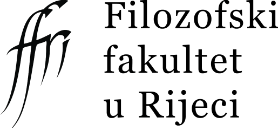CALL FOR ABSTRACTS:
“Hate speech, fake news and freedom of speech” online workshop
The workshop will take place online, from 18th to 19th of July 2023.
Doctoral studies of the Department of Philosophy, Faculty of Humanities and Social Sciences in Rijeka are organising an online workshop “Hate speech, fake news and freedom of speech” which will explore some of the relevant issues on the intersection of philosophy of language, moral and political philosophy, and political epistemology. The workshop will take an online format so that we may provide the opportunity of participation to as many interested authors as possible. The workshop will last two days and will be organised in the third week of July, namely the 18th and 19th of July 2023 (Central European Time).
Description of the workshop:
Language is a powerful, and most crucial tool for communication. Therefore, in liberal societies one of the fundamental principles that is guaranteed is freedom of speech and world’s democracies have sought to protect it. However, there are instances of speech that can be potentially dangerous and cause harm to certain members of society. Most notably, such harm stems from hate speech – speech that, most broadly put, promotes hatred towards certain groups of people, and disinformation – false information created to manipulate citizens’ opinions (for example, fake news). Slurring is one, probably most used, form of hate speech but there is no consensus in literature about the content of slurs or their effects when uttered. Additionally, in the aftermath of the Covid-19 pandemic many realized how fake news can even affect decisions we make about our health. With online communication the perlocutionary potential of this kind of speech is even greater; it can spread fast and cause even more potential damage. So, the question is: what should be done with such phenomena in society? One possible answer is to regulate speech that causes potential harm, but the discussion is not simple since it clashes with the need to protect the fundamental principle of freedom of speech. Furthermore, there is no unified definition of hate speech which makes determining what kind of speech should possibly be restricted even more challenging. Or, is a more appealing approach to responding to this phenomena more speech, i.e. counterspeech?
We aim to contribute to the ongoing debate on these important issues and therefore welcome contributions on, but not limited to, the following questions:
Does the right to freedom of speech trump the right to restrict hate speech and fake news? Would restrictions on speech violate democratic processes or are they violated by non-regulating hate speech and fake news?
How should hate speech be defined?
If hate speech and fake news cause harm, what kind of harm is it?
What do slurs do when uttered, i.e. what kind of effect do they produce?
Is there a way to respond to such phenomena in society? What should that response look like? Would the most efficient responses be regulatory laws, counterspeech, or some other forms of responses, if any?
In addition, the organizers also accept proposals set around the work of our keynote speakers on said topics, but not as a requirement.
Keynote speakers: Jennifer Saul (University of Waterloo)
Jonathan Seglow (Royal Holloway)
Robin Jeshion (USC Dornsife)
Teresa Marques (University of Barcelona)
Researchers are welcome to submit their 300-word long abstracts on the topic by the 1st of June 2023 to the organizers at: julija.perhat@gmail.com and icerovac@uniri.hr
The organizational committee will inform applicants whether their proposals have been accepted shortly after the closing date, and no longer than the 10th of June 2023. No fees are applied.
Organizational board: Julija Perhat (University of Rijeka), Nenad Miščević (University of Maribor), Ivan Cerovac (University of Rijeka)
